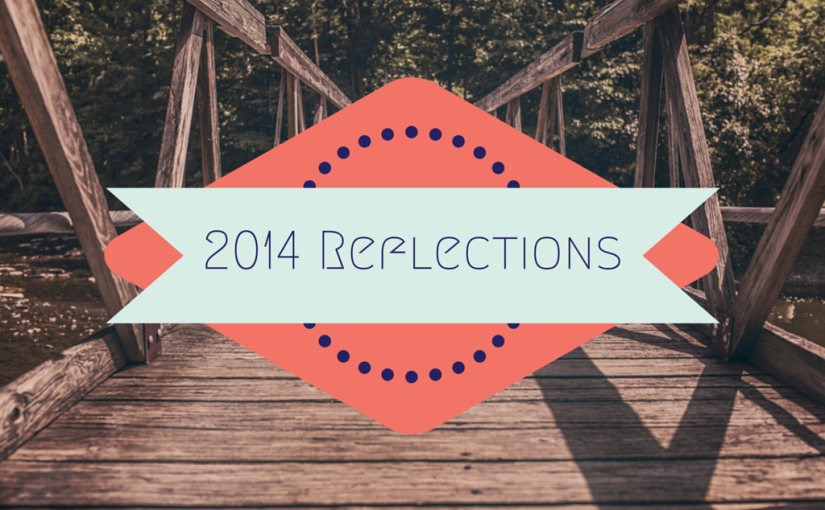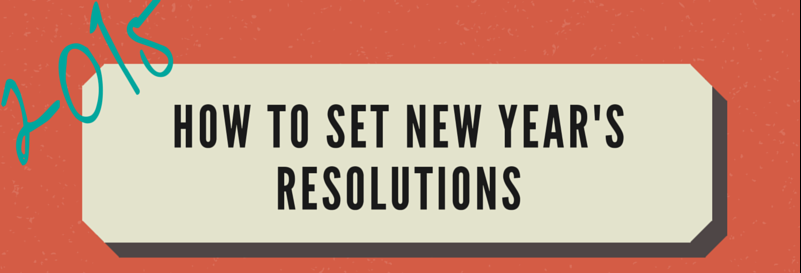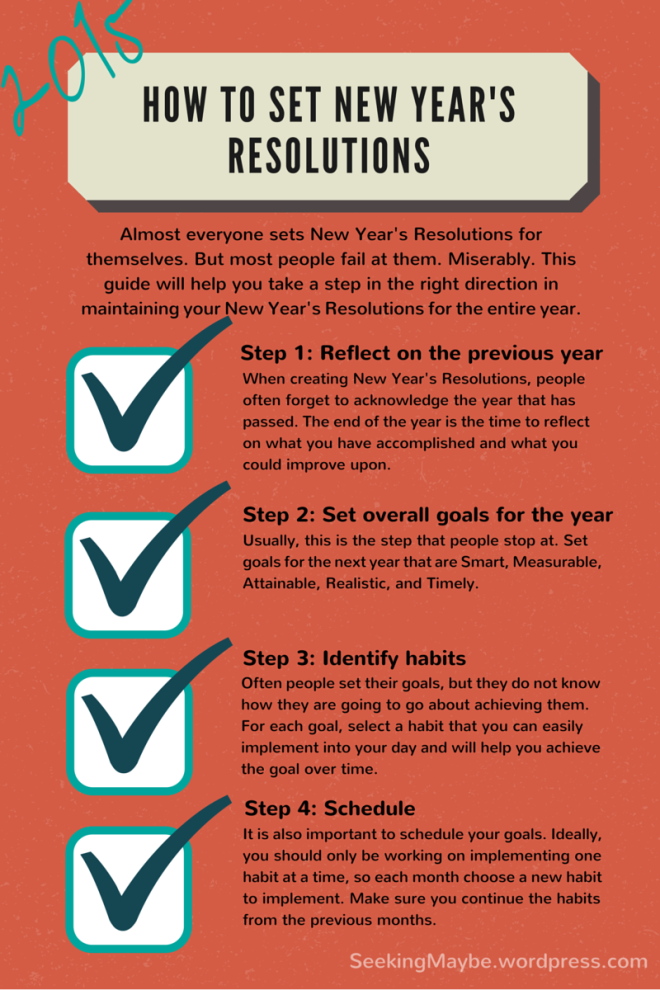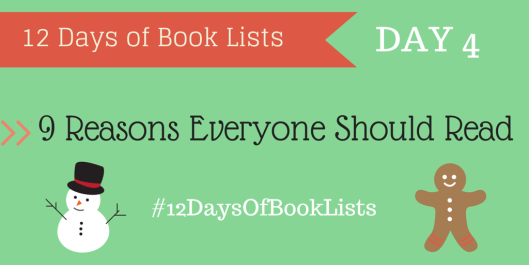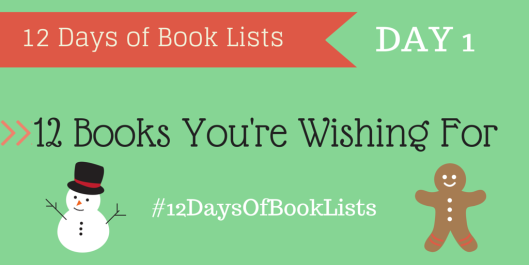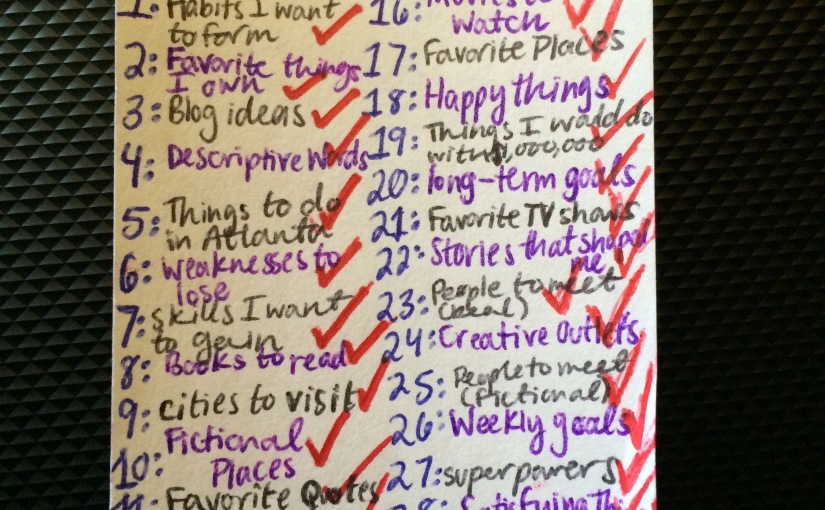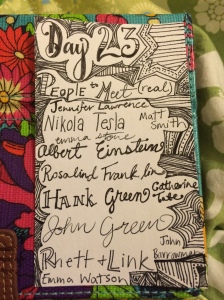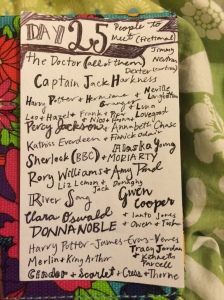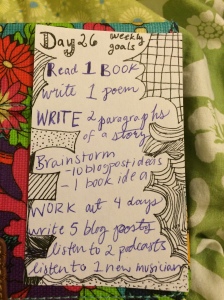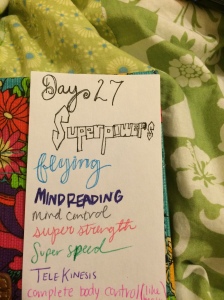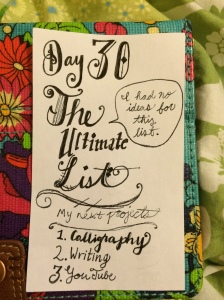Pretty good things: My February consisted of lots of Tumblr and a good amount of Netflix. I’m almost done with season 5 of F.R.I.E.N.D.S. I only read approximately 3 books. I read Freak of Nature by Julia Crane, which I was not a huge fan of. I guess the idea of the book was promising, but the writing was just terrible, and the story was rushed. I also read An Abundance of Katherines by John Green, which was relatively enjoyable, kind of boring at times, but okay overall. I also read about half of Complications by Atul Gawande, which I’m reading for a class, and it is a fantastic book, especially for those interested in medicine to any extent. I started The Time Machine by HG Wells; I wasn’t really paying attention when I started it, so it’s been hard to get through. I also started Just One Day by Gayle Forman; it’s okay so far. I’ll see if it lives up to the hype (probably not). I’ve also been listening to more music, which is a good thing in my opinion. My current favorite artists are Hozier and Milky Chance.
Also pretty good things: Productivity-wise, I did pretty well in February. I’ve still been getting my work done by approximately 5 pm. I was also pretty social in February (for me at least). I actually met a lot of people last month. I need to find some productive hobbies. That shouldn’t be a problem though because my sister got me an early birthday present of a calligraphy set, so I am going to be spending a lot of time writing stuff on paper. Maybe I should use that as a reason to write poetry, which I’m supposed to do this year anyways. I researched a lot about MBTI again. I know so much about it by this point that I should probably write a whole separate blog about living life as an INTJ. I will probably start working on that once the current round of exams is over with.
Bad things: I didn’t journal much, which is a bad thing because a lot of things went on in February. I really need to start journaling again, at least once a week. My eating habits have also been bad. Not that I’ve been eating unhealthy food, I just haven’t been eating enough, and I forget to eat sometimes.
I think that’s pretty much it for February.
How did your February go?

